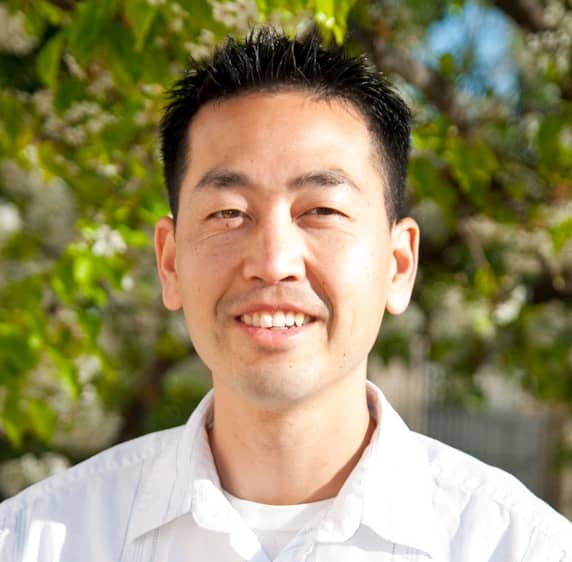
“Just Say No” was a popular campaign in 1980’s America. Yet this “war on drugs” was ineffective because it told kids what to reject without explaining the reasons why. Likewise, saying “No” to sin requires the motivation to resist just as much as the skills to do so. Good morals require biblical foundations because morality can change behavior, but theology transforms the heart.
Application Insight: The mere mention of theology may provoke a yawn, yet theology is not a class to sleep through. Every parent, disciple, small group leader, and counselor must learn theology. In fact, every person, Christian or otherwise, is a theologian. The only question is whether your practice is biblical. So intentionally ground your theology in Scripture or someone else will dictate it for you.
In previous articles, we have seen how Jesus said “No” to busyness, people-pleasing, and self-importance. Here, Jesus models saying “No” to the sinful temptation of worldly desires. Before delighting in Christ’s victory over sin, however, let’s first examine sin’s victory over man.
In the Garden (Genesis 1-3)
Our story begins in the garden of Eden with Adam and Eve. In Genesis 1-2, God created mankind in his image to worship him forever (1:26-27). Yet man rebelled against God and disobeyed his only prohibition: “You may surely eat of every tree of the garden, but of the tree of the knowledge of good and evil you shall not eat, for in the day that you eat of it you shall surely die” (2:16-17). Their desire then led to sin: “So when the woman saw that the tree was good for food, and that it was a delight to the eyes, and that the tree was to be desired to make one wise, she took of its fruit and ate, and she also gave some to her husband who was with her, and he ate” (3:6). Melissa Kruger describes this pattern of sin as following four basic steps: First we see, then we covet, then we take, then we hide. Eve “saw that the tree was good for food” (v. 6a). She then coveted this fruit for its beauty and its promise to make her wise. So, Eve desired to eat from this forbidden tree and “she took of its fruit and ate.” Then when she and her husband realized their sin, they hid from God (vv. 7-8). Eve saw; she coveted; she took; she hid.
Beneath the Tent (Joshua 7)
A man named Achan saw the treasures of Jericho. “And Achan answered Joshua, ‘Truly I have sinned against the LORD God of Israel, and this is what I did: when I saw among the spoil a beautiful cloak from Shinar, and 200 shekels of silver, and a bar of gold weighing 50 shekels, then I coveted them and took them. And see, they are hidden in the earth inside my tent, with the silver underneath’” (Joshua 7:20-21; see v. 1). Achan saw; He coveted; He took; He hid.
From the Rooftop (2 Samuel 11-12)
King David saw a beautiful woman. “It happened, late one afternoon, when David arose from his couch and was walking on the roof of the king's house, that he saw from the roof a woman bathing; and the woman was very beautiful” (2 Samuel 11:2). David saw and coveted another man’s wife (v. 3). “So David sent messengers and took her, and she came to him, and he lay with her” (v. 4a). Then, after committing adultery with Bathsheba, David tried to hide his sin with deception and murder and even marriage (vv. 5-27). David saw; He coveted; He took; He hid.
Into the Pit (Genesis 37)
“[Joseph’s] brothers saw that their father loved him more than all his brothers, they hated him and could not speak peacefully to him” (Genesis 37:4). They coveted their father’s love. So, when the opportunity arose, “they took [Joseph] and threw him into a pit” until finally deciding to sell him into slavery (vv. 24-28). When they returned home, Joseph’s brothers hid from their father the terrible deed that they had done and let their father believe that Joseph had been slaughtered by a wild animal (vv. 31-33). They watched with guilty consciences as their father mourned the death of his beloved son (vv. 34-35). They saw; They coveted; They took; They hid.
In Every Heart (Numbers 16)
Korah was a Levite in the religious order of Israel, yet he was not a priest like Aaron (Numbers 16:8-10). Korah saw the greater calling of Aaron and he coveted that position (Psalm 106:16-18). So, he and his followers tried to take it by force—a religious coup: “They assembled themselves together against Moses and against Aaron and said to them, ‘You have gone too far! For all in the congregation are holy, every one of them, and the LORD is among them. Why then do you exalt yourselves above the assembly of the LORD?’” (Numbers 16:3; see vv. 1-2). In other words, “Aren’t we all the children of God? Who appointed you as leaders?” Yet even as he led this mutiny, Korah still attempted to hide his ambition. He accused Moses and Aaron of being proud, when in fact he himself was the prideful one. As Moses revealed,
Hear now, you sons of Levi: is it too small a thing for you that the God of Israel has separated you from the congregation of Israel, to bring you near to himself, to do service in the tabernacle of the LORD and to stand before the congregation to minister to them, and that he has brought you near him, and all your brothers the sons of Levi with you? And would you seek the priesthood also? Therefore it is against the LORD that you and all your company have gathered together. What is Aaron that you grumble against him? (vv. 8-11).
Korah saw; He coveted; He took; He hid.
Application Insight: You do what you do because you want what you want: wisdom and knowledge like Eve; wealth and security like Achan; pleasure and intimacy like David; love and approval like Joseph’s brothers; power and prestige like Korah. Sometimes you want whatever you see on the latest commercial or the filth on a digital screen. You then do what you do because you want what you want. You see; You covet; You take; You hide.
In a Fallen World (1 John 2:15-17)
The horrible pattern of sin is that we see with our eyes, covet with our hearts, take what we want, then hide it from the gaze of God and others. John also warns us against such covetousness:
Do not love the world or the things in the world [Do not covet]. If anyone loves the world, the love of the Father is not in him. For all that is in the world—the desires of the flesh [Watch what you want] and the desires of the eyes [Watch what you see] and pride in possessions [Watch what you take]—is not from the Father but is from the world. And the world is passing away along with its desires, but whoever does the will of God abides forever (1 John 2:15-17).
Even our world has observed this pattern. For example, in Harry Potter and the Philosopher’s Stone, a special mirror reveals each person’s deepest longing. Our world, however, has no sure way of controlling inordinate desires. They claim you can take whatever you want as long as it doesn’t hurt anyone and that you need not hide or be ashamed of who you are. Yet Scripture warns against sin’s devastating influence. According to James, “Each person is tempted when he is lured and enticed by his own desire [when he sees and covets]. Then desire when it has conceived gives birth to sin [when he takes and hides], and sin when it is fully grown brings forth death” (James 1:14-15). Sin always leads to suffering: Adam and Eve were cast from the garden; Achan and his family were put to death; David suffered unbearable heartache and family strife; Joseph’s brothers carried their guilty consciences for decades; Korah was swallowed by God’s wrath. Sin always produces a deadly fruit.
Application Insight: Think about your own life and identify the deadly consequences of sin in your past. How have you suffered because of poor choices or disobedience to God’s Word? Are you still hiding from the only One who can truly save you? You need a way to say “No” to the penalty and the power of sin. Next time, we will look to Jesus who continually said “No” to sin.
12/6/2022 5:23:31 PM





